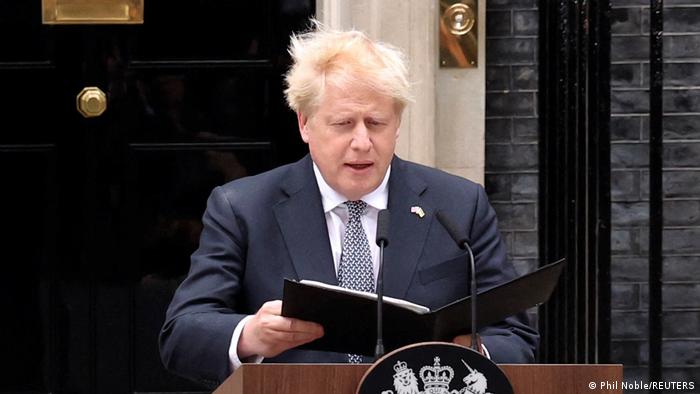UK Prime Minister resigns, how will the pound move?
The pound rose slightly after Mr. Boris Johnson said he would resign as Britain’s Prime Minister. Will the pound keep rising?

Mr. Boris Johnson said he would resign as Britain’s Prime Minister.
The number of resignations from the Johnson government now totals well over 40; a very unenviable record. The likes of Blair and Thatcher did not see this scale of departures after a full decade in office. Even Teresa May, who faced a wave of resignations over Brexit, did not suffer as many departures as Johnson (one of which was Johnson himself who resigned as foreign secretary). Betting odds suggest that there’s practically 100% probability that Johnson will not last the year as PM and this seems eminently reasonable.
Does it follow that such a weakened PM will preside over a slumping pound? Mr. Steve Barrow, Head of Standard Bank G10 Strategy’s opinion, it is not necessarily true, for two main reasons. The first is that he may still have time to push through more populist policies to try to save his skin and these could be perceived as positive for the pound. The second, is that his successor will likely be seen as someone that would stand a better chance of securing election victory next time around as the Conservative Party currently appears deeply unpopular under Johnson’s leadership.
On the first of these, it has been abundantly clear for a long time now that Johnson wants to follow more populist fiscal policies than his – recently departed – Chancellor Rishi Sunak. Indeed, this was a large part of the reason that Sunak resigned. It is not unusual for there to be such tensions; indeed, they seem the norm rather than the exception. But they have appeared to be the most acute for many decades and there is a suspicion that Johnson, more than any other recent leader, will have targeted a ‘yes man’ in new Chancellor Zahawi to try to push through more populist policies, starting with the scrapping of a planned rise in corporation tax next year.
“Sterling could rise if such policies are seen as more likely to pull the economy out of the recessionary hole that’s rapidly swallowing up the country. But of course, there’s another side to this debate. For with inflation over 9% and seen heading to over 11% by the BoE, fiscal largesse might just risk ingraining high inflation, especially if one of Johnson’s more populist policies is to give public sector workers inflation-busting pay rises”, said Mr. Steve Barrow.
This being said, it seems unlikely that Johnson will be PM long enough to wreak any fiscal havoc anyway. But this does open up the risk that the next PM will just also adopt a more populist fiscal mantle as they try to secure the thumping election win that Johnson delivered in 2019, not long after he ousted Teresa May as PM. Another unknown relates to the attitude any new PM might have towards negotiations with the EU over the infamous Northern Ireland protocol. A more conciliatory line here by any new PM could also work to the pound’s advantage.
The bottom line is that the political mess the UK finds itself in could go either way for the pound. On balance, Mr. Steve Barrow thinks it is more likely to be positive than negative. However, a deeper question is whether politics can usurp the absolutely dire economic position that confronts the UK. For in a sea of global economic despair the UK really does lie at the very bottom of the ocean. It means that, for now at least, the economy is more likely to drag the pound down even if Johnson is ousted and his replacement works hard to re-float the economy, the fortunes of the Conservative Party – and the pound.








